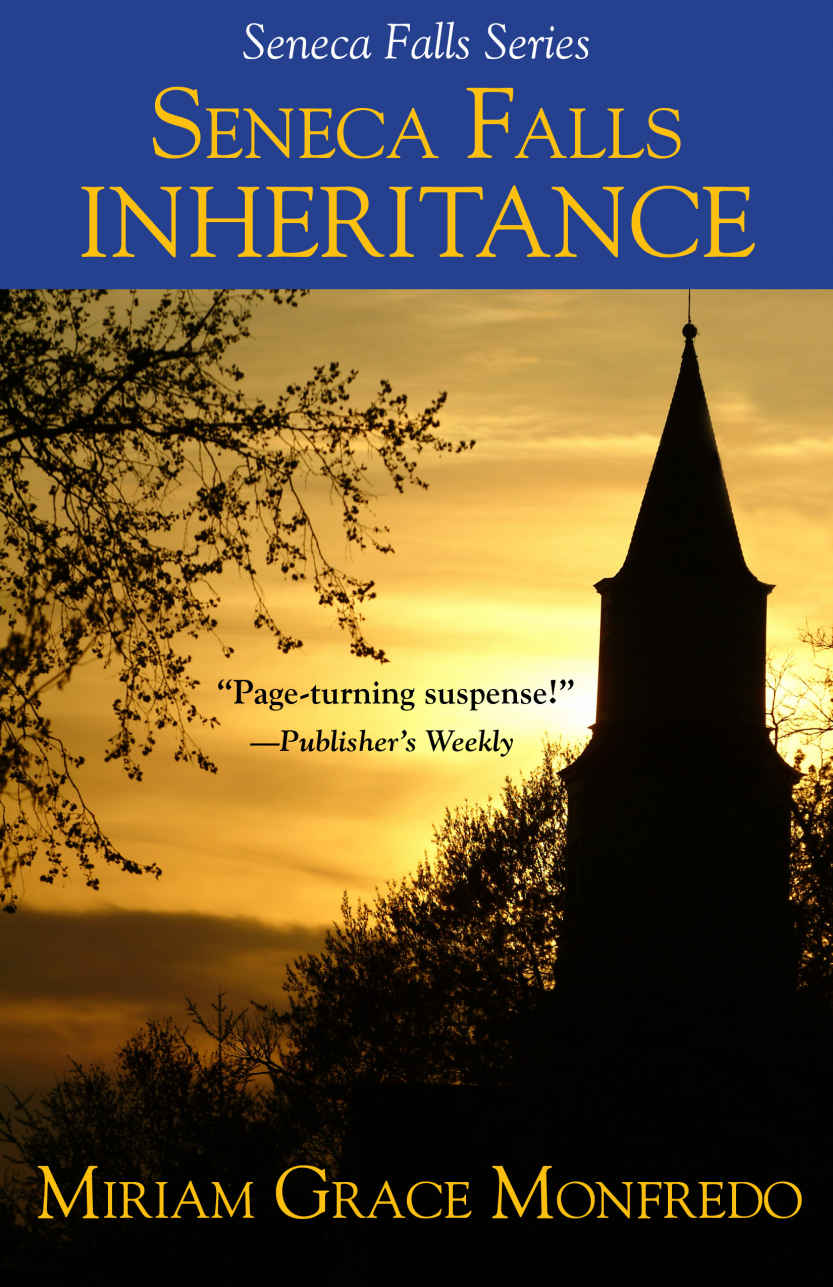During the Women’s Rights Convention of 1848, a body turns up in the canal — and town librarian Glynis Tryon stands up to a killer.
From Publishers Weekly
In her historically authentic and cleverly entertaining first novel, Monfredo skillfully meshes life in Seneca Falls, N.Y., immediately before the First Women’s Rights Convention in 1848 with a page-turning suspense story. Charming spinster librarian Glynis Tryon, like her fellow townspeople, is shocked by the sudden deaths of wealthy Friedrich Steicher and his wife, but she is more surprised by the appearance of a woman who says she is the daughter Steicher never knew. Before the woman can prove her allegation, however, she is murdered. Although suspicion falls heavily on Friedrich’s only son, Karl, he denies the woman was his sister, even when her husband comes to town to lay a claim on the estate. Unofficially deputized, Glynis questions those who might have spoken to the woman, and continues the investigation of a second, related murder when the sheriff becomes ill. Historical figures, foremost Elizabeth Cady Stanton, are woven seamlessly into this well-modulated, satisfying tale.
From Kirkus Reviews
Glynis Tryon, busily cataloguing the books that Friedrich Steicher bequeathed to the Seneca Falls library, politely refuses a stranger’s request to handle the Steicher family Bible (included by mistake) and then directs the woman to the livery to hire a carriage; she’s off to Waterloo in search of her mother’s friend- -Elizabeth Cady Stanton. The woman is murdered first, however, and between stocking the library shelves and canvassing the local women about a possible women’s rights conference, Glynis learns that the victim was the illegitimate half-sister of Karl Steicher, who thought he was the sole heir to his father’s fortune. Furthermore, the woman’s husband, Gordon Walker, decides to sue for his dead wife’s share. Meanwhile, it’s up to Glynis and the constable’s deputy, Jacques Sundown, an Indian, to discover who would most benefit from Rose Walker’s death–and then to tie this murder in with the killing of a saloon girl. Nicely conceived first novel, which makes good use of Genesee (malaria) fever, Jane Eyre as a threat to job security, and the First Women’s Rights Convention of 1848. More romantic than rabid feminists might like, but a telling glimpse at Bloomers, childbirth, and abused wives of the mid-19th century. — Copyright ©1992, Kirkus Associates, LP. All rights reserved.
In the Words of Readers
Get Your Copy Now!

